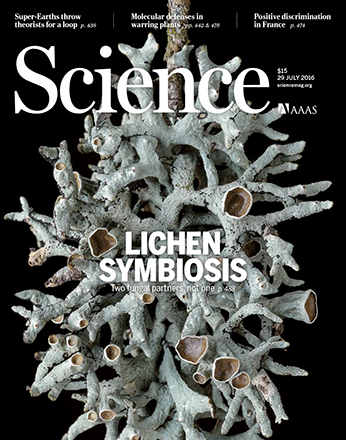 Science is considering adding an expression of concern (EOC) to a June paper that caught the media’s attention for showing how human pollution may be harming fish, following allegations of research misconduct.
Science is considering adding an expression of concern (EOC) to a June paper that caught the media’s attention for showing how human pollution may be harming fish, following allegations of research misconduct.
A group of researchers allege the paper — which suggested fish larvae are eating small particles of plastic rather than their natural prey — contains missing data and used a problematic methodology. After the researchers submitted a formal letter (available here), Uppsala University in Sweden is now conducting an inquiry, the first step in determining whether to launch a formal investigation.
A spokesperson from Science told Retraction Watch that once the journal independently verifies that an investigation is underway, it will issue an EOC for the paper:
We were notified by the complainant that the paper was under investigation and we are contacting Uppsala University and the Swedish Ethical Review Board to confirm that an investigation is indeed under way at either or both institutions. We will also reach out to the authors.
Once we have received confirmation, we will alert our readers through the publication of an Editorial Expression of Concern, to let them know that concerns have been raised about the validity of the data and an investigation has been undertaken by one or more institutions. Once we have sufficient information from the investigating entities, we can determine the most appropriate next steps.
A spokesperson from Uppsala told us:
Uppsala University has received allegations of misconduct in research from a research group regarding the study you refer to (Lönnstedt OM and Eklöv P (2016) Environmentally relevant concentrations of microplastic particles influence larval fish ecology. Science). The University has, in accordance with our routines, assembled a group of external researchers to review the allegations. The University has also passed on the matter to Centrala etikprövningsnämnden (Central Ethical Review Board) http://www.epn.se/centrala-
etikproevningsnaemnden/om- naemnden/
She added:
The allegations concern the method used in the study and data that is claimed to be missing.
Andrew Sugden, a deputy editor at Science, said the nature of the inquiry would determine whether Science issued an EOC.
The paper been cited once since it was published in June 2016, according to Thomson Reuters Web of Science. The inquiry has also been reported by the publication SVT (in Swedish).
An inquiry appears to be standard procedure when Uppsala receives allegations of misconduct, according to their regulations:
The Dean of the faculty shall be immediately informed in writing upon suspicion of scientific misconduct. This report initiates an inquiry which shall be conducted by an ad hoc group of suitable composition for the case. The group shall consist of experts, of which at least one member shall be affiliated to another seat of learning.
This is apparently only a first step in the process, the rules note:
The intention of the inquiry is to determine if an investigation of the case is warranted.
The paper caught some media attention, such as from The Independent, Washington Post, and BBC News (headline: “Fish eat plastic like teens eat fast food, researchers say”), expressing concern about how human pollution may be hurting the environment.
Sweden is currently in the midst of reevaluating its policy for investigating misconduct, following a high-profile debacle over the Karolinska Institutet’s (KI) investigation of surgeon Paolo Macchiarini.
Corresponding author Oona M. Lönnstedt, a postdoctoral researcher at Uppsala, told us she couldn’t comment during the inquiry.
Like Retraction Watch? Consider making a tax-deductible contribution to support our growth. You can also follow us on Twitter, like us on Facebook, add us to your RSS reader, sign up on our homepage for an email every time there’s a new post, or subscribe to our new daily digest. Click here to review our Comments Policy. For a sneak peek at what we’re working on, click here.
This is quite significant. I had seen this article in Science and it changed how I viewed plastics, particularly microbeads. The article likely also helped triggered some of the actions being taken to ban microbeads.
Equally notable are the researchers who raised concerns about the paper: they come from 7 different institutions literally from across the globe. For those who don’t have time to click the links, they range from Norway/Sweden/Switzerland to Tasmania(AU) to Canada. It’s hard to get much more wide ranging than this. That they collaborated to submit comments suggests their level of concern (it’s to their credit as well since they should have a important impact).
Sad. I do hope that the missing data problem will not lead to a retraction. This paper is an eye-opening one and apparently improves our understanding of negative impacts of daily use of chemicals.
The paper is an eye-catching one. The question is “are its findings real?” If they are valid, the study will help us understand negative impacts.
If they are invalid, it can push regulatory authorities & politicians to waste efforts on actions that offer no benefit to health and the environment. Wasting money, time & effort on non-issues is bad for both health & the environment.
In addition, if you read the formal letter, you’ll see the problems are far beyond just missing data (which in itself is important). I recognize that for some environment groups feelings matter more than data, so they may not want the study retracted even if its data, statistical design and analysis, and other aspects are flawed. However, if the latter is correct, it shouldn’t be published in a scientific journal (let alone Science).